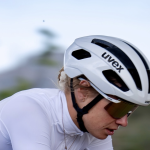Academy Sports’ debt ratings were upgraded by Moody’s Investors Service and S&P Global Ratings following the retailer’s proposed refinancing and debt redemption amid the recent IPO and good operating performance.
Proceeds from the proposed $400 million term loan, $400 million other new pari passu secured debt and an estimated $648 million of balance sheet cash will be used to refinance the company’s $1,434 million outstanding term loan due 2022 and pay for fees and expenses.
Moody’s upgraded Academy’s corporate family rating (CFR) to B1 from B2 and probability of default rating (PDR) to B1-PD from B2-PD. S&P raised its issuer-credit rating to ‘B’ from ‘B-‘.
Moody’s said in its analysis, “Academy’s B1 CFR reflects the company’s moderately high lease-adjusted gross leverage and the competitive nature of sporting goods retail, including the increased focus of major apparel and footwear brands on direct-to-consumer distribution and the shift to online shopping. Moody’s projects a modest increase in leverage to 3.8 times in 2021 compared to 3.4 times as of August 1, 2020 Pro-forma for the transaction. In Moody’s view, the large-scale shift in consumer spending towards the sporting goods category in 2020 and away from travel and leisure will likely partially reverse once health and safety concerns abate. As a result, Moody’s expects revenue and earnings to decline in 2021 following strong growth in 2020, and there is significant uncertainty with regard to a more normalized earnings level. In addition, as a retailer, Academy needs to make ongoing investments in its brand and infrastructure, as well as in social and environmental drivers including responsible sourcing, product and supply sustainability, privacy and data protection. Academy’s ongoing offering of firearms and ammunition at a time when several large retailers have pulled back also represents a social consideration.
“At the same time, Academy’s ratings positively consider the company’s very good liquidity, scale and solid market position in its regions. The turnaround strategy put in place by the current management team, including initiatives in merchandising, private label credit card and omnichannel investment, has started yielding results since the back half of 2019. Moody’s also expects Academy to benefit from its value price points and diversified product assortment, which tend to result in resilient performance during economic downturns. In addition, the rating considers governance factors, including the expectation for more conservative financial strategies following the public equity offering. Specifically, although the company remains majority-owned by private equity sponsor KKR, Moody’s views re-leveraging transactions as unlikely following the equity filing and the over 40 percent reduction in gross debt following the refinancing.
“The stable outlook reflects Moody’s expectation that the company will continue its solid performance and maintain a good liquidity profile.”
S&P said in its analysis, “The upgrade reflects lower debt following the proposed refinancing and debt redemption amid the recent IPO and good operating performance.
“Academy’s recent IPO raised more than $180 million and strong demand (double-digit growth) for Academy’s products through the COVID-19 period, as consumers seek socially distanced entertainment options and hobbies during the pandemic, has also bolstered free cash flow. Academy’s planned use of more than $600 million of its cash balance (compared with our previous estimate of about $500 million) to repay debt materially reduces leverage, which we estimate will be below 4x in 2021 after some of the recent COVID-19-related benefits dissipate. We now expect Academy will pursue a less aggressive financial policy. Although the company is still majority-owned (about 70 percent) by financial sponsor KKR who could advocate for an aggressive approach to shareholder rewards, we have revised our financial policy score to FS-5 from FS-6 because of KKR’s reduced ownership and the company’s stated financial target. In addition, the improved credit measures and our expectations for sustained positive FOCF generation lead us to assess the financial risk profile score more favorably as aggressive (previously highly leveraged).
“We believe Academy will maintain a limited market position in the sports retailing subsector.
“Academy participates in the highly competitive and mature sports retailing industry. We view the company as a larger regional player in its space, with stores primarily in Texas and adjacent southern states. The company positions itself as a value player and competes with significantly larger and better-capitalized players. We think this puts the company at a potentially long-term disadvantage, as this sector is prone to discounting and competitive pricing. We also believe sporting goods and related products remain a highly fragmented sector with increasing competition from many players, including larger specialty retailers such as Bass Pro, pure-play e-commerce competitors such as Amazon, and big-box retailers such as Walmart. Moreover, we believe Academy and the sports retailing industry may experience more volatile performance over the medium term following the recent gains, because of the pandemic and its effects on the economy.
“The company’s operating results will likely normalize in 2021 and we project a low- to mid-single-digit-percent decline in sales and a modest decline in adjusted EBITDA.
“Academy’s recent performance trends have benefited from its market position as a value-oriented sporting goods retailer. In addition, we believe 2020 results likely benefited from some pull-forward demand and government stimulus, and think the latter is especially relevant to Academy’s more value-oriented customer base. We do not project either event to reoccur in our base-case projections for next year. We also expect Academy’s apparel and footwear sales, contributing more than 40 percent of its sales, to experience uneven performance for the next 12-to-18 months, as apparel sales remain highly competitive.
“We hold this view despite viewing positively the company’s increased focus and investment on in-store experiences and omnichannel capabilities. Still, we project Academy’s omnichannel sales penetration will be about 10 percent of its total sales, lower than many retailing peers. This is despite management’s efforts to narrow the gap in recent quarters and the significant growth experienced during the past few months. As the company works to expand its online capability, we believe its lack of experience and operational knowledge in this area could lead to potential setbacks and amplify profit volatility. As such, we maintain a negative comparable rating modifier to reflect our view that the company’s largely brick & mortar, regional model in a highly competitive space exposes Academy to significant long-term risks.”
Photo courtesy Academy
















